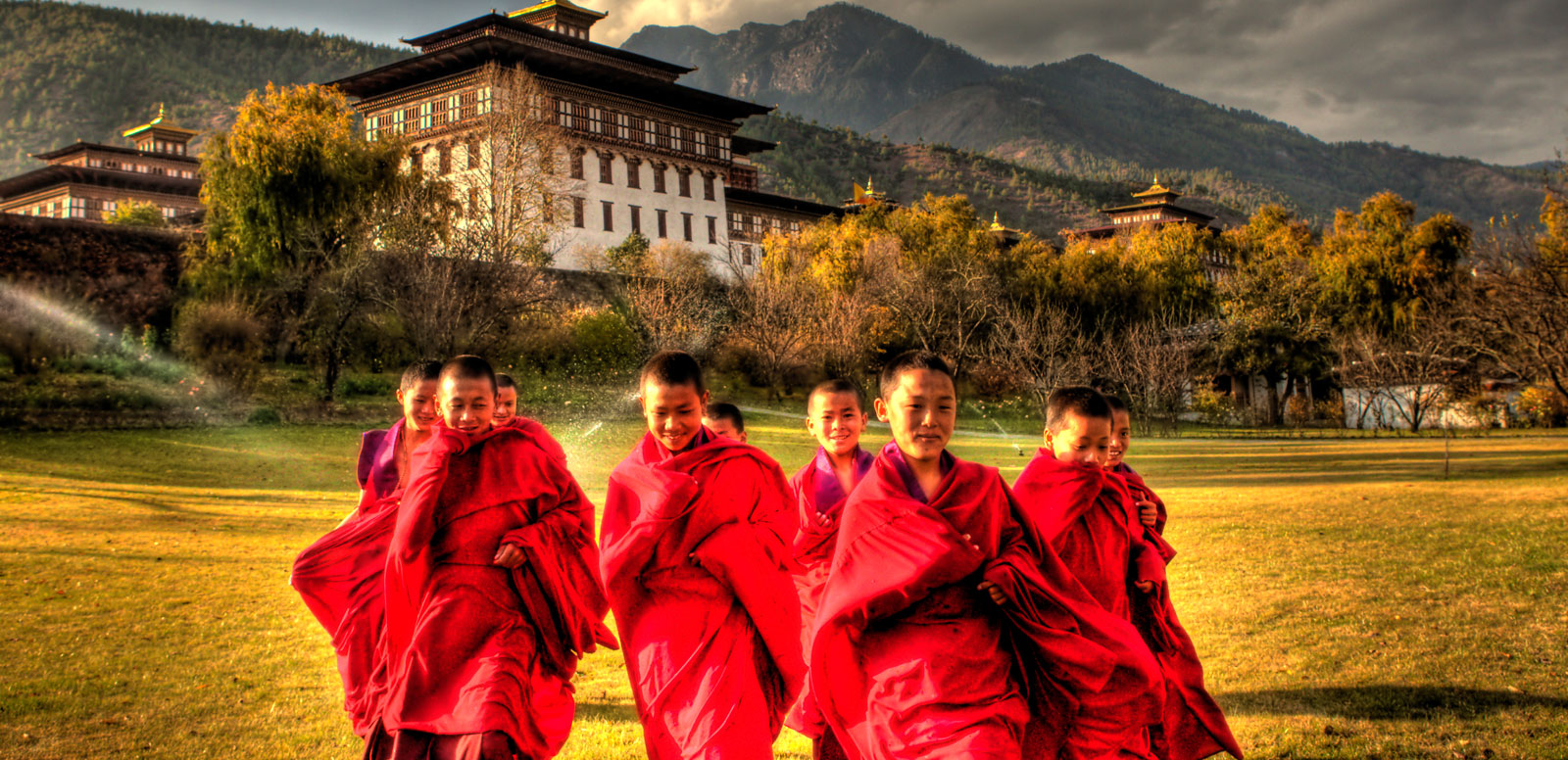Bhutan often revered as the "Land of the Thunder Dragon" or 'Druk Yul', is still regarded as one of the last "Shangri-La's" in the Himalayan region because of its remoteness, its spectacular mountain terrain, varied flora and fauna and its unique ancient Buddhist monasteries
This country of rolling hills and towering crags certainly exudes charm. The mountains are magnificent, the forest are dense, the people are delightful, the air is pure, the architecture inspiring, the religion exciting and the art superb. Like timeless images from the past, the traveler encounters the full glory of this ancient land through its strategic fortresses known as Dzong, numerous ancient temples, monasteries and stupas which dot the countryside, prayer flags which flutter along the high ridges, wild animals which abound in dense forests, foamy white waterfalls which are the ethereal showers, and the warm smile of its friendly people.
The tiny kingdom of Bhutan shares with Nepal the world's greatest concentration of mountains and living heritage of Buddhism. Flight to Paro can truly be described as a flight into fantasy. During the flight, a first-hand close-up view of Mt. Everest, Mt. Kanchenjunga and other famous peaks of the Himalaya range become a reality.
With its beautiful and largely unspoiled Himalayan setting, its rich flora and fauna and its vibrant Buddhist culture, Bhutan has become an increasingly popular destination for international tourists. In addition to generating hard-currency revenue, tourism is also providing impetus for the development of services sector and hence balanced and holistic development of entire region. In an effort to safeguard its rich natural and cultural environment, the country has consciously adopted a controlled tourism and development policy.
The flight to Paro is one of the most spectacular in entire Himalayas. Whether flying along the Himalayan range from Kathmandu or over the foothills from Kolkata, the journey offers fascinating views and an exciting descent into the Kingdom. Bhutan’s first gift to you as you disembark from the aircraft will be cool, clean fresh mountain air. After immigration formalities and baggage collection, you will be met by our representative, and afterwards drive to Thimphu, the capital town of Bhutan with enroute stop at Chuzom, the confluence of Thimphu and Paro rivers. Three different styles of stupas; Tibetan, Nepalese and Bhutanese adorn this confluence. Shortly before reaching Chuzom, you will see on your left TschogangLhakhang, “the temple of the excellent horse”. It is a private temple, built in 15th century, as the result of visitation from Balaha, the excellent horse, a manifestation of Chenrezig, the compassionate Buddha.
On arrival in Thimphu, check-into the hotel. The capital town of Bhutan and the center of government, religion and commerce, Thimphu is a unique city with unusual mixture of modern development alongside ancient traditions. Although not what one expects from a capital city, Thimphu is still a fitting and lively place. Home to civil servants, expatriates and monk body, Thimphu maintains a strong national character in its architectural style.
Evening an exploratory walk around Thimphu Main Street and market area. Also visit the Local Crafts Bazaar, to browse through example of Bhutan's fine traditional arts. Here you can buy hand-woven textiles, Thangkha paintings, masks, ceramics, slate and wood carvings, jewellery, interesting items made from local materials.
Overnight at the hotel in Thimphu (Altitude 2400m).
Meal: No Meal
After breakfast, sightseeing in Thimphu Valley including visit to the following: The National Library, housing an extensive collection of priceless Buddhist manuscripts; the Institute for Zorig Chusum (commonly known as the Painting School) where students undergo a 6-year training course in Bhutan’s 13 traditional arts and crafts. Later visit Textile Museum, which provides insight into Bhutan’s one of the most distinct art forms. Also visit Simply Bhutan, a living museum and studio encapsulating the cultural heritage of the Bhutanese people.
After lunch, take a short drive (15 km) to Pangri Zampa, 16th century one of the oldest monasteries in Bhutan located just north of Thimphu. Here is a monastic school where Buddhist student’s monks learn Lamaism and astrology based on Buddhist philosophy.
Afterwards visit to Buddha Point (Kuensel Phodrang). Located at a short drive from Thimphu city center, visitors can get a good overview of the Thimphu valley from the Buddha point (Kuensel Phodrang). You can pay your obeisance and offer prayers to the Buddha, the largest statue in the country and then walk around and take a glimpse of the valley.
King's Memorial Chorten continuously circumambulated by people, murmuring mantras and spinning their prayer wheels. Construction of this landmark was the idea of Bhutan’s third king, His Majesty Jigme Dorji Wangchuk (“the father of modern Bhutan”) who has wished to erect monument to world peace and prosperity. Completed in 1974 after his untimely death, it serves both as a memorial to the Late King and as a monument to peace.
Later visit to Trashichhoedzong: This impressive fortress/monastery houses Secretariat building, the throne room of His Majesty, the King and various government offices. It is also the summer residence of Chief Abbot and central monk body.
Overnight at the hotel in Thimphu.
After breakfast at hotel, Drive to Punakha across Dochula Pass (3O8Om). In Bhutan, the passes are marked by a large Bhutanese Chorten and prayer flag. Dochula pass offers the most spectacular view over the high peaks of the eastern Himalayas on a clear day.
Enroute take a short-day walking to Chimi Lhakhang (from hotel it is about 15 minutes’ drive till motorable road and then walk starts through paddy fields and villages. This is total about 1½ hour walk, including both way). The Chimi Lhakhang, situated on a hillock in the center of the valley, also known as the temple of fertility. It is widely believed that couples who do not have children and wanting one, if they pray at this temple, they are usually blessed with a child very soon. The trail leads across rice fields to the tiny settlement of Pana, meaning ‘field’. A walk through the village near the temple will give you rare glimpses into the daily life and lifestyle of the villagers.
After checking into hotel, proceed to visit Punakha Dzong, a massive structure built at the junction of two rivers. It was the capital of Bhutan until 1955, and still serves as the winter residence of the monk body.
Evening can be spent exploring Punakha village located right on the bank of river.
Overnight at the hotel in Punakha.
After breakfast drive back to Paro descending back down from Dochu La, follow the way back up the dramatic Wang Chhu and Paro Chhu River valleys, before crossing through Paro Town towards the north end of the valley, enroute visit Simtokha Dzong, the place of profound tantric teaching, this Dzong now houses a school for the study of the Dzongkha language.
Later in the day after checking into hotel, proceed to visit Ta Dzong, originally built as Watchtower, which now houses National Museum. The extensive collection includes antique Thangkha paintings, textiles, weapons & amour, household objects and a rich assortment of natural and historic artifacts.
Then walk down the trail to visit Rinpung Dzong, meaning (“fortress of the heap of jewels”), which has a long and fascinating history. Along the wooden galleries lining the inner courtyard are fine wall paintings illustrating Buddhist lore such as four friends, the old man of long life, the wheel of life, scenes from the life of Milarepa, Mount. Sumeru and other cosmic Mandala.
Overnight at the hotel in Paro.
After breakfast excursion to Taktshang Monastery (approx. 5hrs walk): It is one of the most famous of Bhutan’s monasteries, perched on the side of a cliff 900m above the Paro valley floor. It is said that Guru Rinpoche arrived here on the back of a tigress and meditated at this monastery and hence it is called ‘Tiger’s Nest’. This site has been recognized as a most sacred place and visited by ShabdrungNgawangNamgyal in 1646 and now visited by all Bhutanese at least once in their lifetime. On 19 April, 1998, a fire severely damaged the main structure of building but now this Bhutanese jewel has been restored to its original splendor.
On the way back to town stop at Drukgyel Dzong, a ruined fortress where Bhutanese warriors fought Tibetan invaders centuries ago. The snowy dome of sacred Chomolhari, "mountain of goddess'' can be seen in all her glory from the approach road to the Dzong.
Along the way, visit the 7th century Kyichu Lhakhang, one of the 108 temples built in the Himalayas by Tibetan King, Songtsen Gampo. The building of this temple marks the introduction of Buddhism in Bhutan.
Evening an exploratory walk around Main Street and market area.
Overnight at the hotel in Paro.
After early breakfast at the hotel, drive to the airport for flight to your onward destination. Our representative will help you with exit formalities and then bid you farewell.
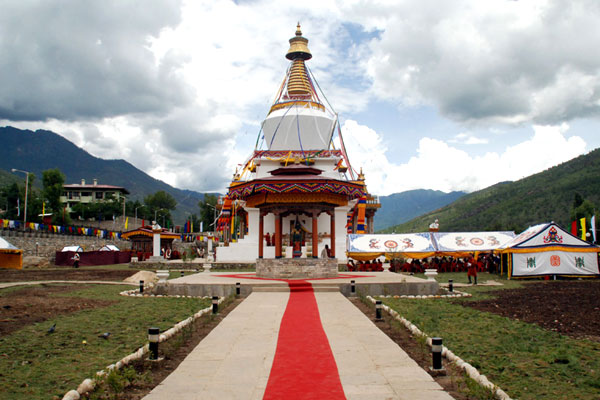
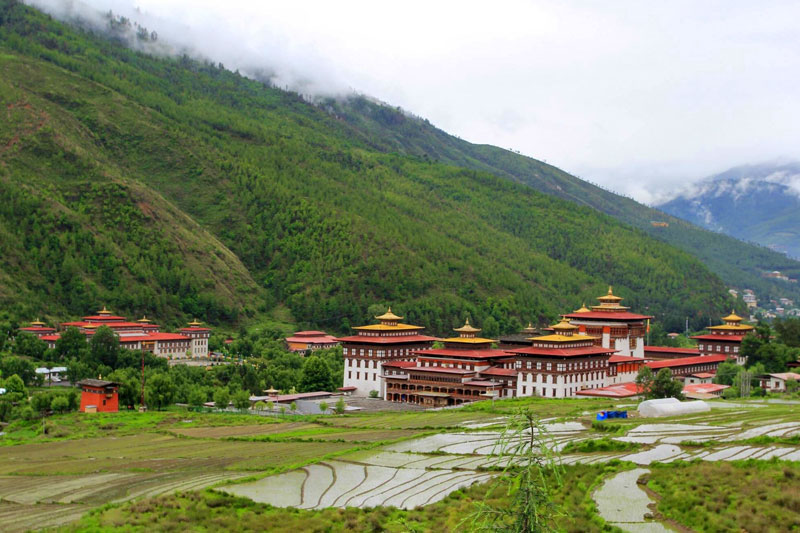
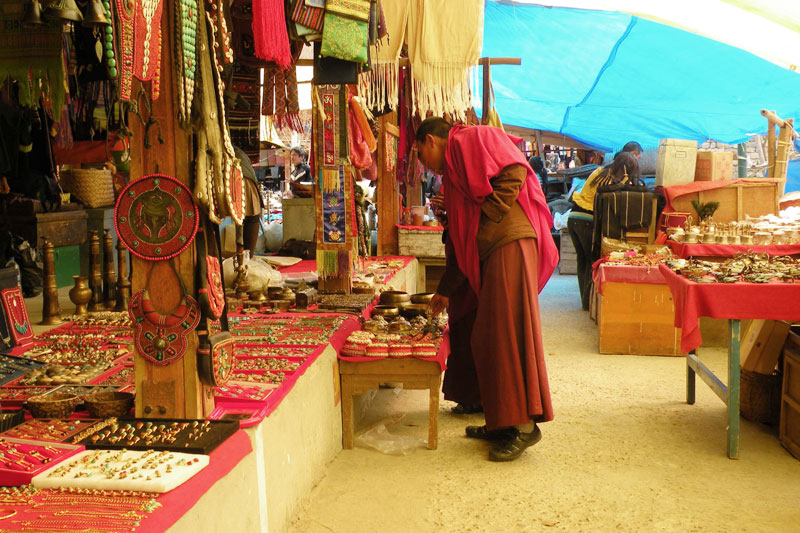
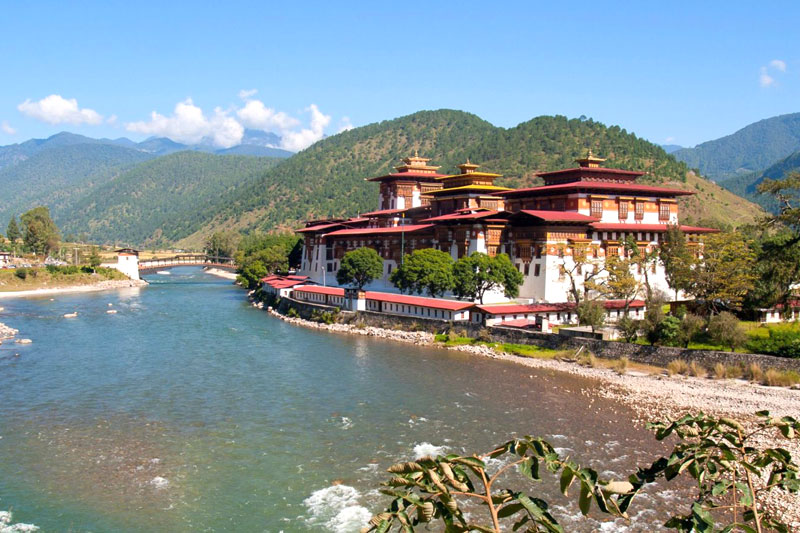
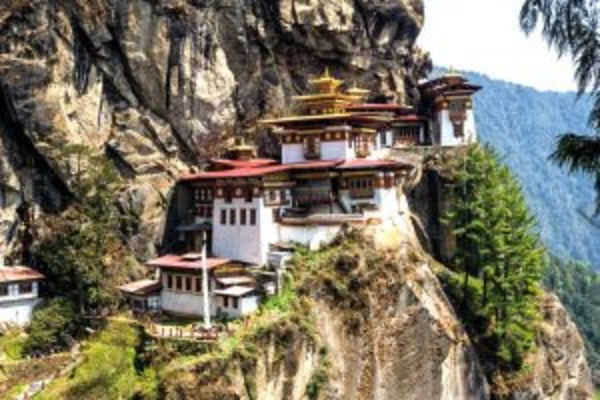
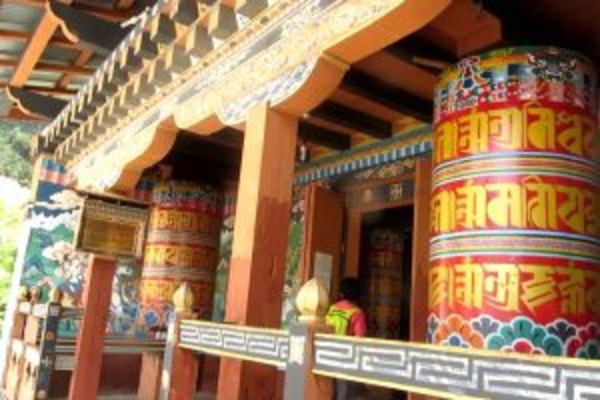
Accommodation based on the double/ twin sharing room.
Lunch at selected local restaurant.
Dinner at the hotel.
Museum, Monuments entrance fee, sightseeing and all applicable taxes.
Private transfers as per the above program with comfortable vehicle.
English Speaking knowledgeable guide.
Bhutan visa fee.
Bhutan Sustainable Development Fee.
2 bottles of Mineral water in the vehicle.
Airfare.
Items of personal nature such as bar bills, alcoholic beverages, laundry, telephone calls, extra mileage, personal gratuities as tips to guide, porters, drivers etc.
Personal insurance policy - suggested a comprehensive travel insurance covering tour and flight cancellations, loss of valuables, thefts, illness, accidents and hospitalization.
Excess baggage.
Hotels envisaged (3*+)
PARO:
The Village Lodge / Tashi Phuntshok Hotel / Tashi Namgay Resort / Tenzinling Resort / Tiger Nest Resort / Hotel Gangtey Palace / Hotel Olathang / Dewachen Resort / Kyichu Resort / Hotel Drukchen / Khangkhu Resort / Namsey Chholing Resort / Janka Resort / Rema Resort / Mandala Resort/Tshang Tshang villa/ Sprit village lodge
THIMPHU:
Hotel Jumolhari / Hotel Kisa / Hotel Migmar / Hotel Galingkha / Hotel Phuntsho Pelri / Hotel Pedling / Hotel Dorji Elements / Hotel Gakyil / Hotel Amodhara Peaceful Resort / Bhutan Suites / Hotel Damisa/ Jambayang Resort / Hotel Norbuling / Namseling Hotel / Hotel Wangchuk / Thimphu Tower
PUNAKHA:
Meri Puensum Resort / Hotel Drubchhu / Damchen Resort / Hotel Zangtho Pelri / Hotel Vara / Puns Tshangchhu Cottages/ sprit village lodge.
Bhutan Visa
In order to process Bhutan, visa we require clear readable color copy of passport (page containing passport no and face picture in JPEG or PDF format) at least 30 days prior to date of entry into Bhutan. Remaining validity of passport should be minimum 6 months from the date of entry into Bhutan (excluding the travelling month).
* Guests are required to have multiple entry visa for India if they are travelling to Bhutan from India and again re-entering into India from Bhutan. Please also check if your Indian visa has ‘2 months re-entry restriction’. If restriction has been stamped in your Indian visa, then you will have to get it endorsed from the Indian embassy in Thimphu for a nominal charge. For this however, you will need to be in Thimphu on working days, Mon – Fri during office hours excluding Govt holidays. You will be asked to provide you’re travelling documents like passports, Air tickets etc.). Our Bhutan Office will assist the clients.
Vehicle Used:
- 01 – 02 Pax: NAC Hyundai Tucson / Santa Fe
CLOSING DAYS OF SOME OF MONUMENTS MENTIONED IN ITINERARY:
- Ta Dzong – Paro (national museum) : closed on Government Holidays
- National Library – Thimphu : closed on Sat, Sun & on Government Holidays
- Textile Museum – Thimphu: Closed on Government Holidays & on Sunday. On Sat open from 9.00 a.m to 4 p.m
- Institute of Zorig Chusum (Arts & Crafts School) - Thimphu: Closed on Sun & Government Holidays. On Sat open from 10 a.m to 12 o’clock. Also closed in winter (Dec-early March).
- Simply Bhutan – Thimphu: Closed on Sun & on Government Holidays
- Folk Heritage Museum – Thimphu: Closed on Sunday & on government holidays
- Choki Traditional Art School – Thimphu: Closed on Government Holidays & on Sunday. On Sat open from 9.00 a.m to 12.30 p.m
- Wangdue Phodrang Dzong, Punakha: Closed due to maintenance.

